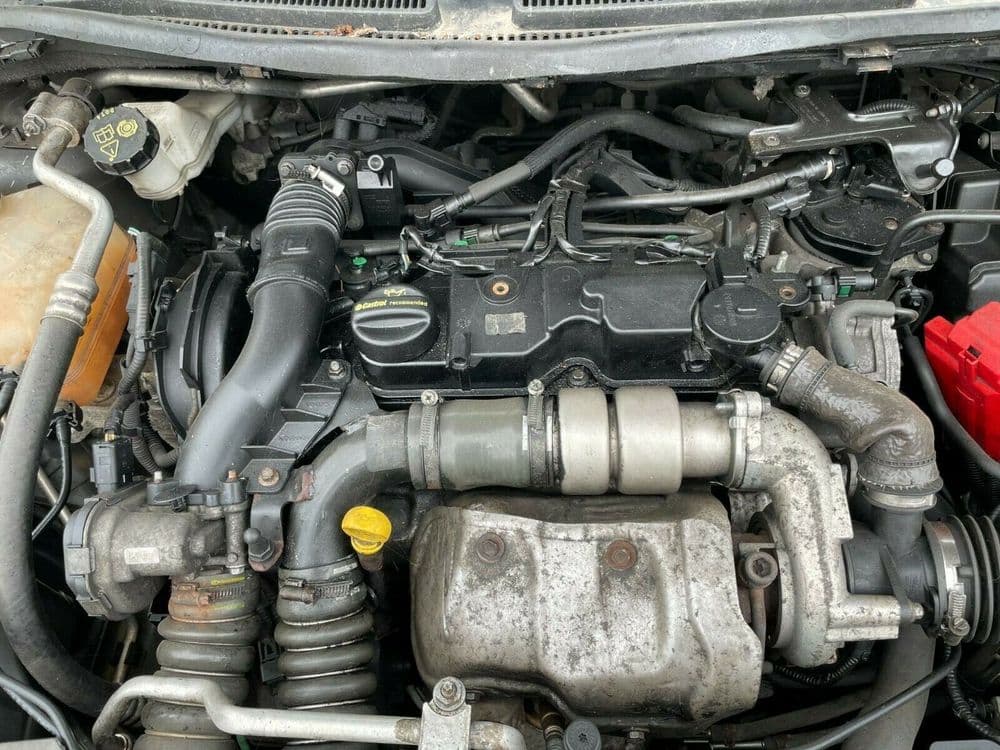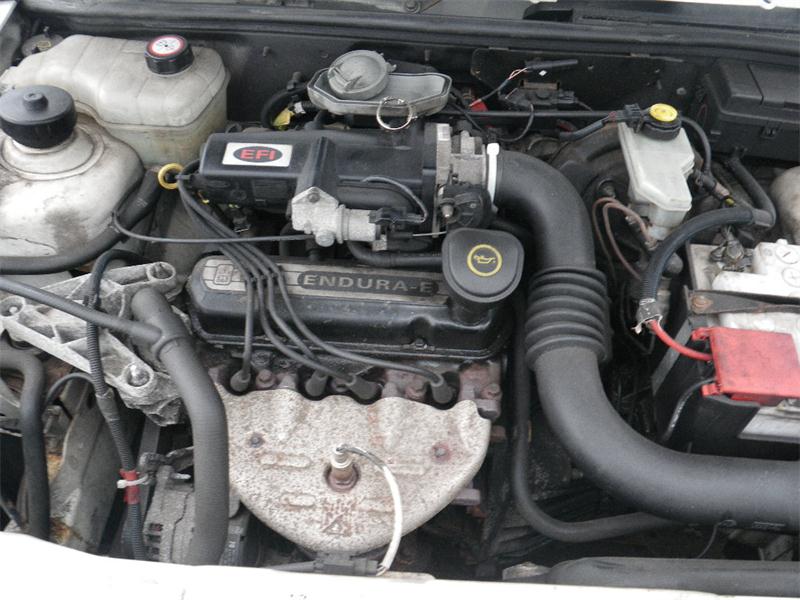How a Well-Maintained Ford Fiesta Engine Improves Vehicle Longevity
How a Well-Maintained Ford Fiesta Engine Improves Vehicle Longevity
Blog Article
The Future of Engines: Technologies Driving Sustainable Power Solutions
As the automobile market browses the important change in the direction of sustainability, the future of engines is progressively specified by groundbreaking innovations. Electric engine innovations, together with appealing growths in hydrogen gas cells and biofuels, are reshaping the landscape of power options.
Electric Engine Developments
The evolution of electrical engine growths symbolizes a critical change in the automotive and aerospace sectors, driven by the immediate requirement for lasting options to nonrenewable fuel sources. This shift is identified by substantial innovations in battery technology, power electronics, and electric motor style, which collectively improve the performance and efficiency of electrical engines.
Recent technologies have resulted in the creation of lighter, much more energy-dense batteries, such as lithium-silicon and solid-state batteries, which guarantee longer varieties and shorter charging times. Additionally, enhancements in electric motor effectiveness, such as making use of permanent magnets and advanced cooling systems, enable electrical engines to run successfully under varying problems. These enhancements not only improve automobile performance however additionally contribute to a decrease in overall power usage.
Moreover, the assimilation of innovative software formulas has optimized energy management in electric lorries, permitting for regenerative braking and predictive billing approaches. As makers progressively welcome electric propulsion, the aerospace and auto fields are witnessing a paradigm change in the direction of greener modern technologies. This evolution not only meets regulatory needs yet also straightens with consumer preferences for eco friendly transportation solutions, strengthening electrical engines as a cornerstone of future sustainable movement.
Developments in Biofuels
As the aerospace and vehicle industries progressively focus on sustainable power resources, advancements in biofuels become a corresponding remedy to electric engines. Biofuels, stemmed from natural products such as plants, waste, and algae, offer an ingenious avenue for reducing greenhouse gas discharges and reliance on fossil gas.
Current research study has concentrated on improving the effectiveness and sustainability of biofuel manufacturing. Second-generation biofuels utilize non-food feedstocks, minimizing competitors with food supply and decreasing environmental effect. In addition, innovations in synthetic biology have actually allowed the engineering of microorganisms to produce biofuels more effectively, causing higher yields and reduced production expenses.
Furthermore, the advancement of drop-in biofuels enables for smooth assimilation into existing facilities, allowing a smoother shift for markets traditionally reliant on fossil fuels. ford fiesta engine. These gas can be used in existing engines without alterations, facilitating their adoption throughout various sectors
Investments in biofuel modern technology, together with encouraging policies, are vital to drive development and scalability. As the worldwide community seeks to deal with climate modification, biofuels use a pragmatic, prompt option that straightens with the overarching objective of sustainability in transportation and aeronautics.
Hydrogen Gas Cell Innovation
A growing number of business and researchers are exploring hydrogen fuel cell technology as a sensible option to conventional source of power in transport and power systems. This innovation transforms chemical energy from hydrogen into power with an electrochemical reaction, with water as the only by-product, making it an eco-friendly option.
The core of hydrogen gas cells is the fuel cell stack, where hydrogen particles are split into electrons and protons. The circulation of electrons produces power, while protons move with a membrane to integrate with oxygen from the air, developing water. This procedure causes high efficiency and reduced emissions, positioning hydrogen gas cells as a vital player in the transition to lasting power.
Considerable innovations have actually been made in improving the longevity and performance of fuel cells, together with lowering prices with innovative production methods. Moreover, the growth of hydrogen manufacturing techniques, such as electrolysis powered by renewable resource sources, improves the sustainability of the general system. As framework for hydrogen refueling expands and manufacturing methods become more reliable, hydrogen fuel cell innovation holds excellent promise for decarbonizing various fields, including heavy-duty transportation and fixed power generation.
Hybrid Equipments and Their Effect
Hybrid systems stand for a significant advancement in lasting engine technology, merging typical internal combustion engines with electric propulsion to enhance power effectiveness and minimize emissions (ford fiesta engine). This dual approach permits automobiles to use both power sources, making it possible for better flexibility in energy consumption and lowering reliance check my blog on nonrenewable fuel sources

In addition to ecological advantages, crossbreed systems use consumers a sensible transition in the direction of fully electric lorries. They ease variety stress and anxiety by combining the convenience of gas with the advantages of electric propulsion, making them an attractive choice for a broader audience. As manufacturers invest in hybrid technology, the advancement of advanced battery systems and light-weight materials continues to boost performance. On the whole, crossbreed systems represent a pivotal action towards accomplishing lasting transport and resolving the urgent requirement for ecologically pleasant power solutions.
The Role of AI in Engine Style
Leveraging innovative algorithms and artificial intelligence strategies, the auto market is progressively integrating synthetic intelligence (AI) right into engine style processes. AI enhances the efficiency and performance of layout by analyzing substantial datasets to recognize optimum arrangements and performance criteria. This capacity enables designers to replicate different operating problems and anticipate engine behavior under numerous situations, considerably minimizing the moment and cost related to traditional prototyping their explanation techniques.
Additionally, AI facilitates the development of sophisticated products and burning processes customized for sustainability. By maximizing gas performance and lessening discharges, AI-driven designs straighten with global efforts targeted at lowering the carbon footprint of automotive engines. Artificial intelligence formulas can additionally forecast upkeep needs, causing boosted reliability and long life of engine parts.
Furthermore, AI contributes in the combination of electrification innovations, such as hybrid systems, where it can enhance battery administration and energy recuperation procedures. As the market relocates towards visit the website more sustainable power options, the duty of AI in engine design comes to be progressively important, driving technology and boosting the performance of future engines. Eventually, the partnership in between AI and engine design advertises a new era of smarter, cleaner, and extra reliable vehicle technologies.

Verdict
In conclusion, the future of engines is being shaped by a merging of ingenious innovations that prioritize sustainability. Electric engine advancements, biofuel developments, hydrogen fuel cells, and hybrid systems jointly add to a considerable decrease in exhausts and ecological influence.
Electric engine developments, together with encouraging growths in hydrogen gas cells and biofuels, are improving the landscape of power options. In addition, improvements in electric motor performance, such as the usage of long-term magnets and advanced cooling systems, enable electrical engines to run efficiently under differing problems. By enhancing fuel performance and reducing exhausts, AI-driven designs straighten with international campaigns aimed at reducing the carbon impact of vehicle engines. As the market relocates in the direction of more sustainable power services, the role of AI in engine design ends up being progressively crucial, driving development and enhancing the efficiency of future engines. Electric engine innovations, biofuel advancements, hydrogen gas cells, and crossbreed systems jointly add to a substantial decrease in emissions and environmental impact.
Report this page